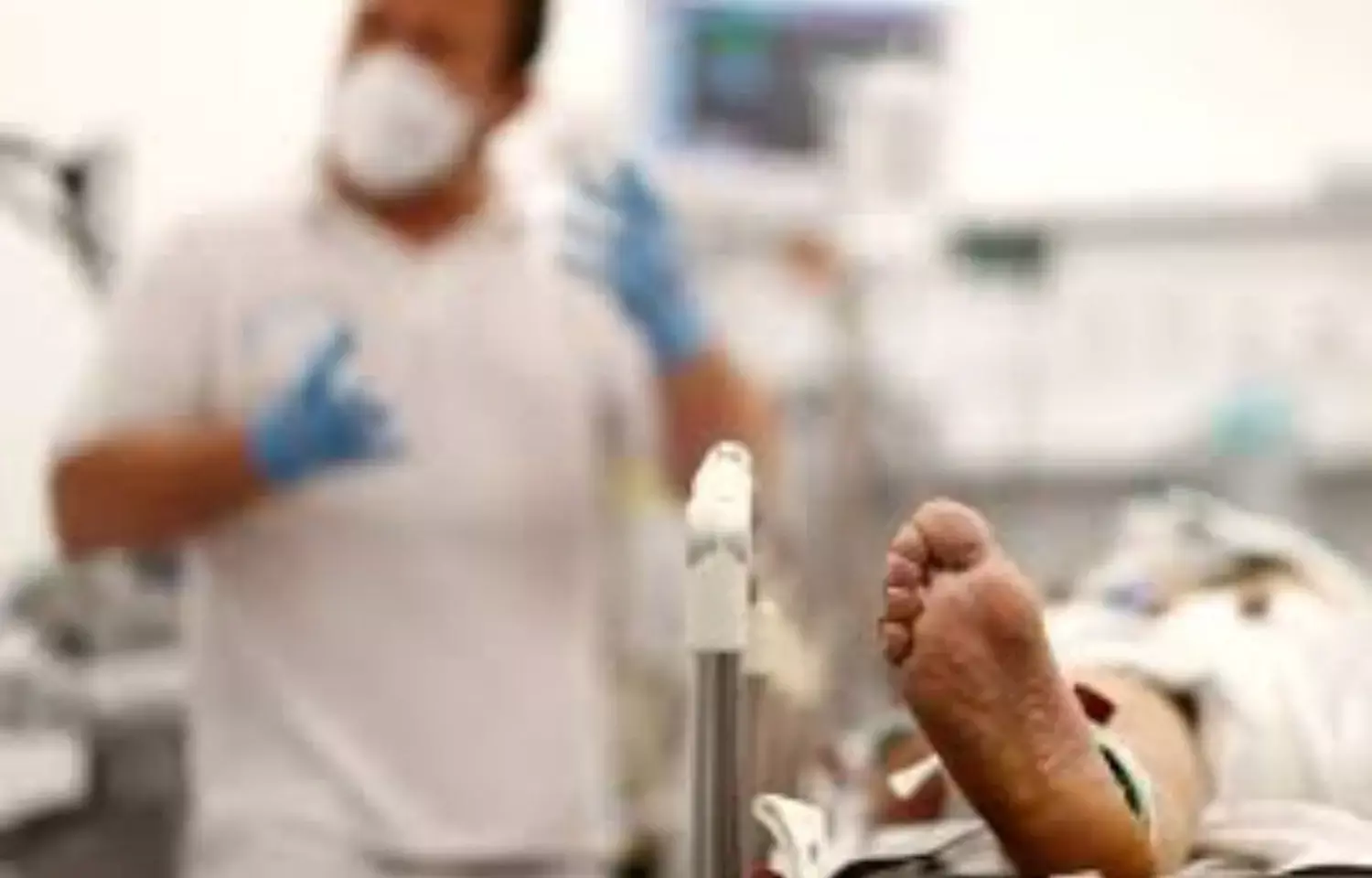- Home
- Medical news & Guidelines
- Anesthesiology
- Cardiology and CTVS
- Critical Care
- Dentistry
- Dermatology
- Diabetes and Endocrinology
- ENT
- Gastroenterology
- Medicine
- Nephrology
- Neurology
- Obstretics-Gynaecology
- Oncology
- Ophthalmology
- Orthopaedics
- Pediatrics-Neonatology
- Psychiatry
- Pulmonology
- Radiology
- Surgery
- Urology
- Laboratory Medicine
- Diet
- Nursing
- Paramedical
- Physiotherapy
- Health news
- Fact Check
- Bone Health Fact Check
- Brain Health Fact Check
- Cancer Related Fact Check
- Child Care Fact Check
- Dental and oral health fact check
- Diabetes and metabolic health fact check
- Diet and Nutrition Fact Check
- Eye and ENT Care Fact Check
- Fitness fact check
- Gut health fact check
- Heart health fact check
- Kidney health fact check
- Medical education fact check
- Men's health fact check
- Respiratory fact check
- Skin and hair care fact check
- Vaccine and Immunization fact check
- Women's health fact check
- AYUSH
- State News
- Andaman and Nicobar Islands
- Andhra Pradesh
- Arunachal Pradesh
- Assam
- Bihar
- Chandigarh
- Chattisgarh
- Dadra and Nagar Haveli
- Daman and Diu
- Delhi
- Goa
- Gujarat
- Haryana
- Himachal Pradesh
- Jammu & Kashmir
- Jharkhand
- Karnataka
- Kerala
- Ladakh
- Lakshadweep
- Madhya Pradesh
- Maharashtra
- Manipur
- Meghalaya
- Mizoram
- Nagaland
- Odisha
- Puducherry
- Punjab
- Rajasthan
- Sikkim
- Tamil Nadu
- Telangana
- Tripura
- Uttar Pradesh
- Uttrakhand
- West Bengal
- Medical Education
- Industry
Panhypopituitarism mimicking symptoms of heart attack: A case report

Japan: Acute coronary syndrome (ACS) is a fatal disease, the authors however suggest that clinicians must not discount panhypopituitarism as it may mimic the symptoms of ACS -- is the conclusion from a case study.
The article was published in the journal Internal Medicine and was reported by Yoshito Sugi, Division of General Internal Medicine, Department of Internal Medicine, Kobe University Graduate School of Medicine, Japan.
The case in question is of a 59-year-old man suspected of having myocardial infarction with sinus bradycardia, a decreased blood pressure, and ST-change on an electrocardiogram was referred to the hospital's emergency department.
No significant findings were revealed on emergent coronary angiography. The patient however experienced shock and required intensive care. Curiosity rose when his urination volume was not disturbed; we suspected hormonal abnormalities. A hormonal examination and imaging analysis revealed panhypopituitarism caused by a Rathke's cyst. Appropriate hormonal replacement therapy improved his symptoms and led to the normalization of his electrocardiogram findings.
Based on the study of the patient, the researchers conclude, "acute coronary syndrome is a fatal disease; however, clinicians must not discount panhypopituitarism, as it may mimic ACS symptoms."
What is panhypopituitarism?
Panhypopituitarism is a condition of inadequate or absent production of the anterior pituitary hormones. It is commonly the result of other problems that affect the pituitary gland and either reduce or destroy its function or interfere with hypothalamic secretion of the varying pituitary-releasing hormones. Panhypopituitarism as a complication of myocardial infarction (MI) is very rare.
Relation between pituitary gland and heart
The intricate relationship between the pituitary and heart is well-known. While hypopituitarism makes the patients prone to cardiovascular (CV) diseases and may present with predominant CV manifestations, several CV disorders are associated with perturbations of single or multiple hypothalamic-pituitary–end-organ axes either as a physiologic response or pathological consequences.
Reference:
Sugi, Yoshito, et al. "Panhypopituitarism Mimicking Acute Coronary Syndrome." Internal Medicine (Tokyo, Japan), 2022.
Dr Kamal Kant Kohli-MBBS, DTCD- a chest specialist with more than 30 years of practice and a flair for writing clinical articles, Dr Kamal Kant Kohli joined Medical Dialogues as a Chief Editor of Medical News. Besides writing articles, as an editor, he proofreads and verifies all the medical content published on Medical Dialogues including those coming from journals, studies,medical conferences,guidelines etc. Email: drkohli@medicaldialogues.in. Contact no. 011-43720751


